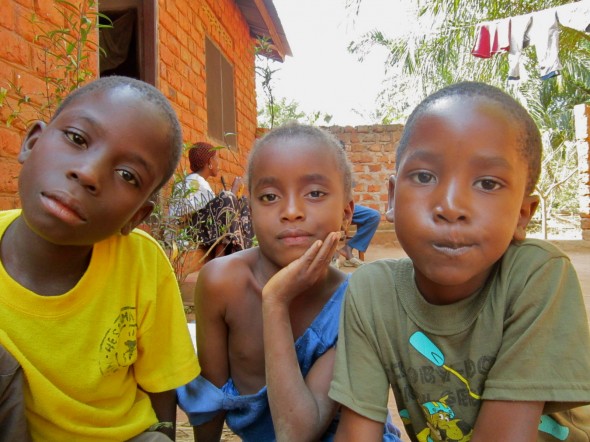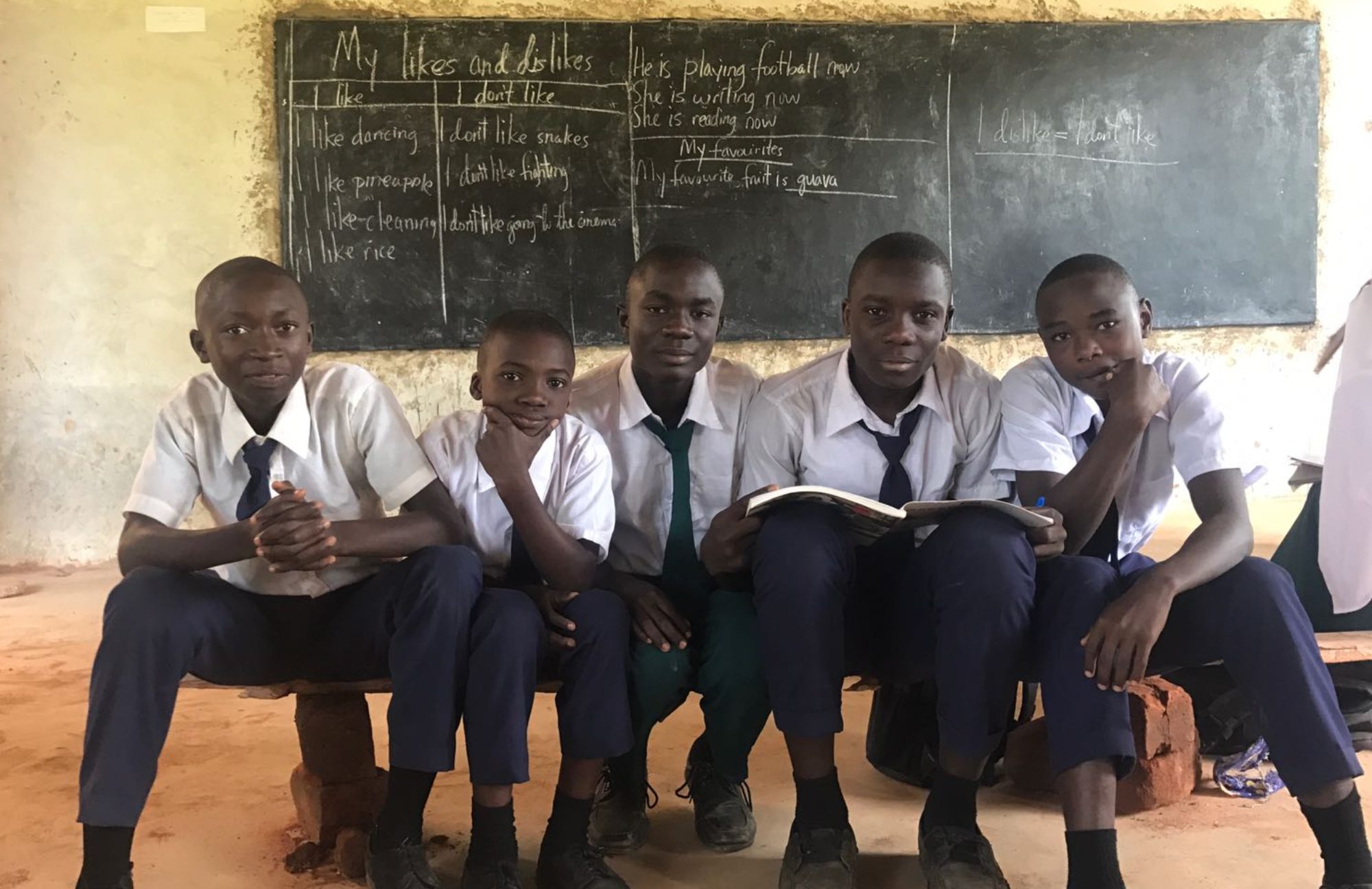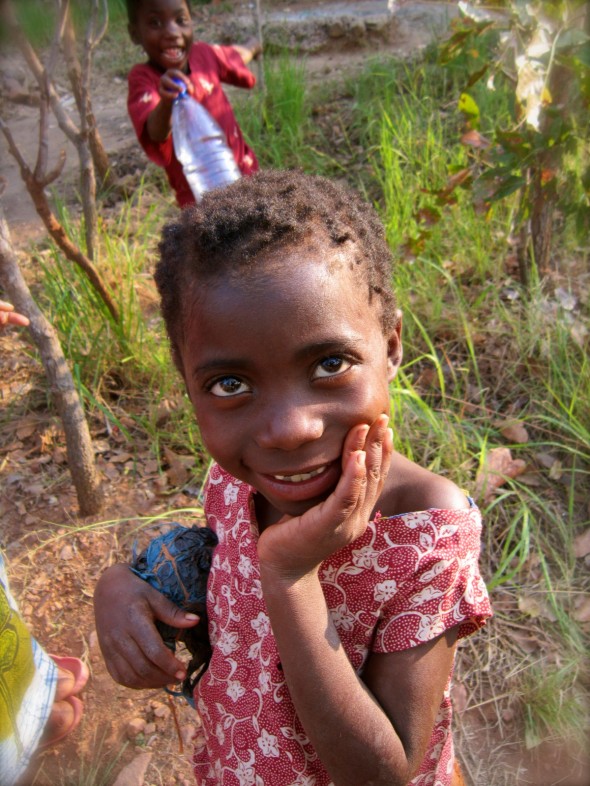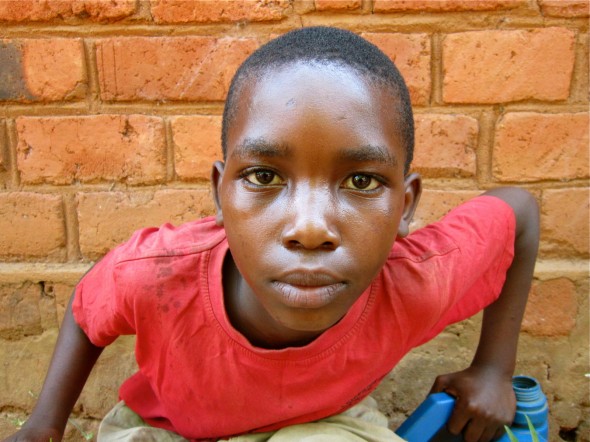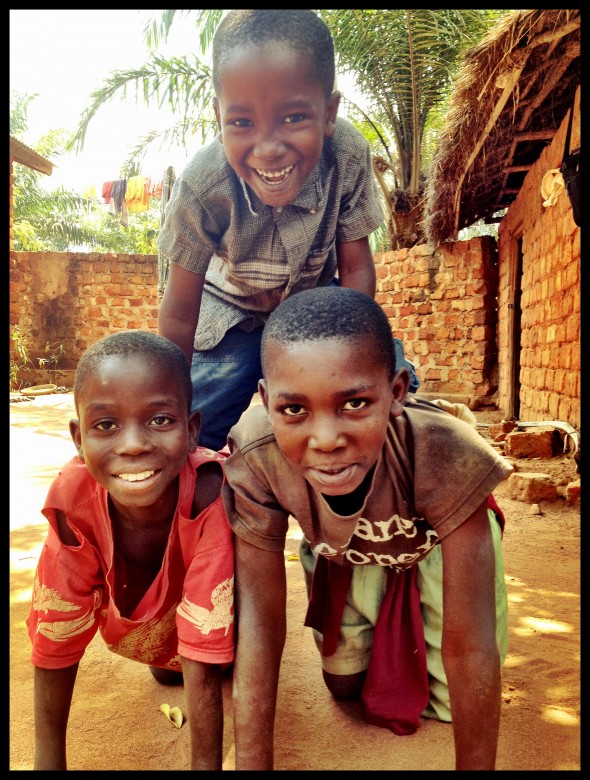This is her story. The story of most girls in the village.
This is his story. The story of most boys in the village.
Are you ready?
There is no response more difficult to deliver than a ‘no’ to the request of a student for school support. Unfortunately, if I said ‘yes’ to every student or parent with this request, I would certainly not be able to sustain the support, but damn I wish I could just say ‘yes, yes, yes, yes, yes’.
I wish I could tell you the following with a wink and smile as if I were joking, but this is the reality of the children in the villages in Tanzania. I’m not trying to paint the ‘fly in the eye’ image either, but I do want to share what is real. This is real. They’re just kids – like you and I used to be, but they do ‘kid’ in a different world than I did.
For three years, Diana walked 1.5 hours each way to and from school daily. In the village, the particular children we support – Saidi, Hindu, Edina, Diana, Amosi and Jumbe – don’t eat breakfast before beginning the journey to school. In fact, they kind of smiled at one another when I asked what they eat for breakfast. Lucas chimed in quickly with a sharply falling tone of voice, “Rai, they don’t eat.” Of course, I’d heard it before, but hearing it again from a chorus of six students made me wince. They all walk a great distance to school. Because secondary schools in the villages are rare, they usually build them in remote areas on the border of villages as to serve children from multiple villages. There are few children lucky enough to live within close range of a school.
In her final year of secondary school, Diana finally moved to the village where her school is located. This is not uncommon. If a secondary school offers boarding, those who can afford it will pay and sleep on site. Many schools in towns and cities offer this option. Village schools do not.
When I asked the kids about lunch at school, again they looked at each other and laughed with insider knowledge. None of these kids get lunch at school. If you have money, you can buy lunch – maybe some chipati and chai – from a woman making and selling on site. But for these kids, who would sooner walk 1.5 hours than pay $0.35 to take public transport, lunch isn’t in the cards.
So, they walk at around 6am, arrive for classes hungry and tired to study with no books in a language they barely speak or understand. They come home, help their parents in the farm or around the house with younger siblings and for the young ones and most boys, they have some time to run and play. Some go swimming, but you better believe they come home with a full bucket of water when they are finished.
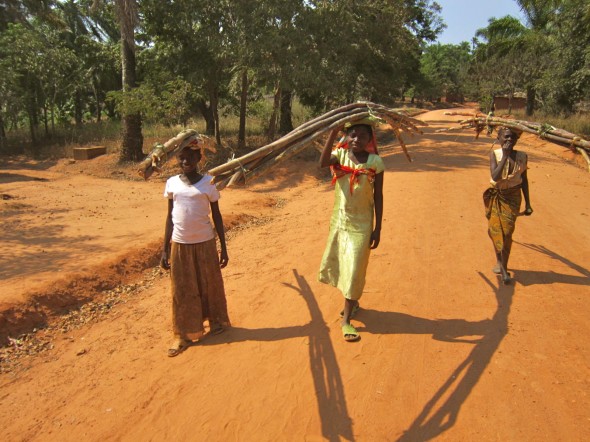 On any given school day you will see school age children walking this way or that from neighboring towns and villages with firewood, sugar cane stalks, buckets of water, sacs of flour or baskets of fish on their heads. ‘Unatoka wapi?” “Where are you coming from?” Three girls we met were returning to Mgaraganza village from Mwandiga town by foot on a Wednesday. This is a trek of about 1.5-2 hours (depending on the heat of the day). There was school, but they had to go to town to buy the sugar cane on their heads and return to the village so their mothers could sell it in the market. This is not a surprising response to our question “Hakuna masomo leo?”
On any given school day you will see school age children walking this way or that from neighboring towns and villages with firewood, sugar cane stalks, buckets of water, sacs of flour or baskets of fish on their heads. ‘Unatoka wapi?” “Where are you coming from?” Three girls we met were returning to Mgaraganza village from Mwandiga town by foot on a Wednesday. This is a trek of about 1.5-2 hours (depending on the heat of the day). There was school, but they had to go to town to buy the sugar cane on their heads and return to the village so their mothers could sell it in the market. This is not a surprising response to our question “Hakuna masomo leo?”
I could continue with more examples and stories that would just read like a prescription for depression, but I’ll stop here. I just want you to share this with your friends and especially with your young friends and children. We are so lucky in the United States and Europe and throughout the ‘developed’ world. We really can have no idea what a great fortune we posses with our lattes in hand, behind the steering wheel of even our old pick up trucks, with a degree or two tucked in our pocket and a paying job with a comfortable office. We can have no idea until we’ve walked 365 days in the feet (often without shoes) of a 12 year old girl or her 28 year old mother in the developing country of our choice.
Cheers to resilience! Now let’s envision a brighter future and make it happen from the ground up!
This is their story. But it doesn’t have to be…